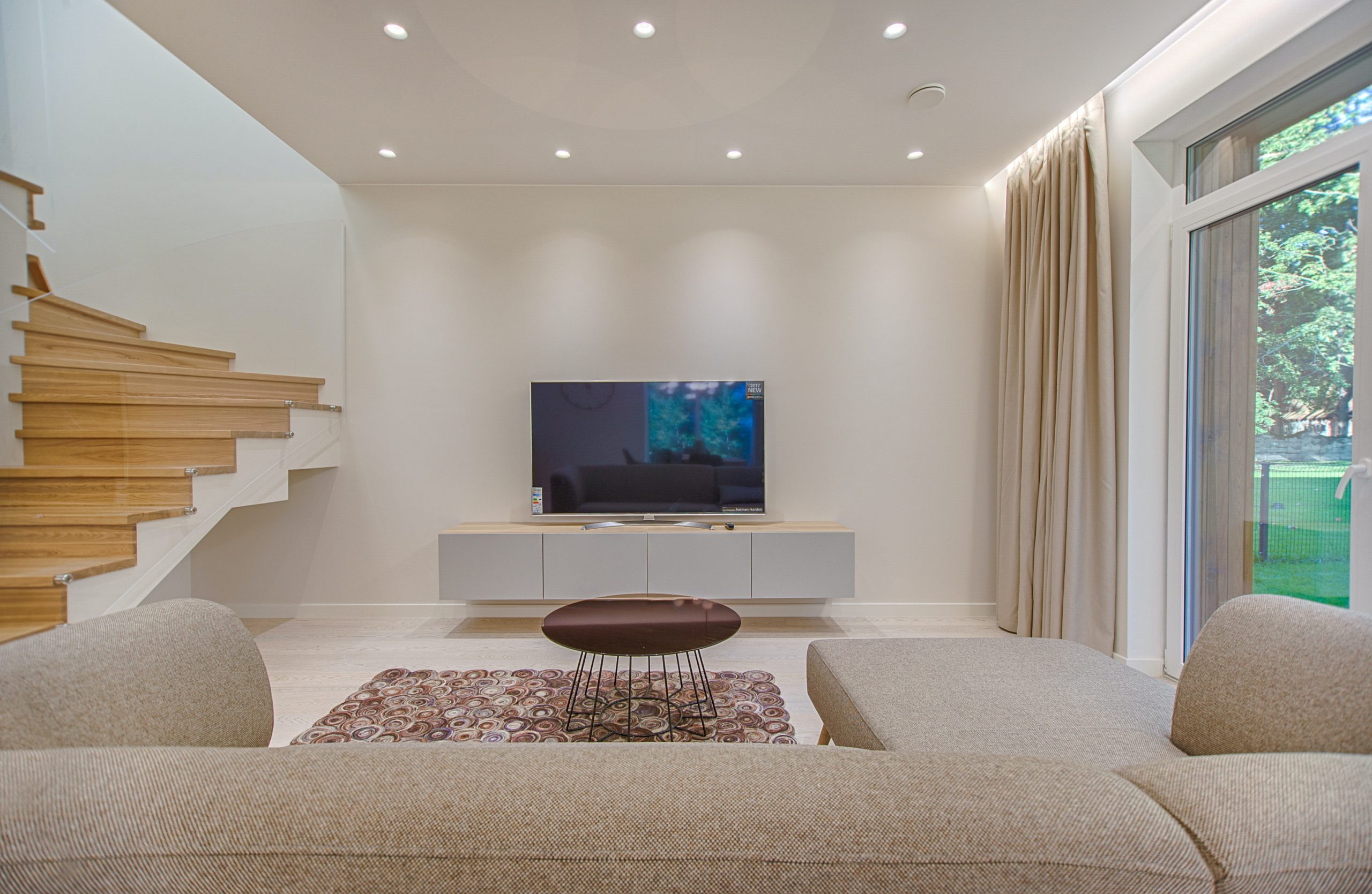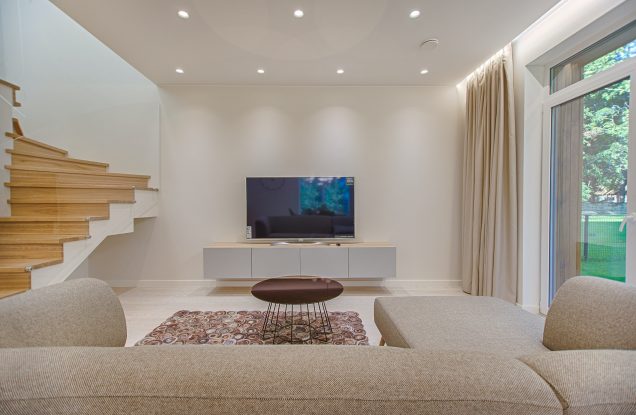How to choose the best interior doors for your home
Choosing the best interior doors for a home is an essential part of your home’s function and a style statement. We know that most homeowners find it very difficult and overwhelming to decide on the right interior door style. This is precisely why we’ve put together this article, which contains all the factors that come into play that you need to know before purchasing internal doors.
What are the functions of interior doors?
Most houses have several interior doors throughout them, each with a unique function. Some interior doors might add extra privacy, and soundproofing, or their primary purpose could be to block off areas for kids for safety reasons.
Before deciding what interior door you want to buy, you need to consider its functionality, not only its appearance. Most people select entries based solely on aesthetics, so you may wish to invest a little more in a panelled door to add more dimension to your hallways. Other people choose their doors strictly based on costs. Usually, modern interior doors help to separate the functionality of each space, starting with dining rooms and bedrooms, which creates that physical break that most homes need to flow well.
If you choose residential doors, you might want to consider who will use them. Installation in your bedroom? Designing them to open and close as silently as possible will be a good decision. If you modify your home’s layout for older people, especially those with mobility chairs, you might want to install double-wide doors. An essential factor to consider is the direction of the door swing and knowing how you want the interior door to open. But there will be times when your doors will start showing signs that they need replacing even before you thought of installing new doors, and at that point, it won’t be only a matter of wanting to change your home’s design but a priority. Check our blog on 5 sign it’s time to change your front door to find out in what condition your doors are in.
Pick a door style
We know that most property owners don’t know how to choose doors, mainly due to the vast array of door style options available, which is the first step in selecting interior doors.
An imperative thing to consider is the room’s scale where you want to install new doors. A common mistake people tend to make is selecting a more ornate door and installing it in small spaces, the reason why the room will look cluttered. The key here is consistency, and there are many style options to choose from, including:
- Pocket doors
- Hinged doors
- Barn doors
- Pivot doors
- Bypass doors
- Dutch doors
- Glass framed doors
- Panelled doors
- Sliding doors
- Aluminium Bi-Fold doors
- French doors
Some additional questions to ask yourself before buying interior doors are:
- What is my home’s style?
- What room is the interior door designated for?
- How tall is the ceiling?
- What material is the floor made from?
Pick the door material.
Remember that your interior door’s material must match your overall home’s aesthetic and must be coordinated with the door style. There are various options to choose from in terms of material, including:
- Solid wood
- MDF
- Glass
- Hollow core
- Solid core
For pantries and sunrooms, a popular choice is glass doors, whilst solid doors make the perfect choice for bedrooms and bathrooms. Let’s talk a bit more about some particular characteristics of each interior door material.
Solid Wood Doors
This is the most expensive type of interior door material, but it is also the most durable. They have various grain patterns depending on the wood used, and they are the perfect choice for noise-blocking purposes.
One of the primary characteristics of this material is the variety of grain patterns that can be achieved depending on the specific wood used. These grains can range from simple, straight lines to intricate swirls and knots, making each door unique in its appearance.
Another significant advantage of this material is its exceptional ability to block noise. This feature makes it an ideal choice for spaces that require privacy, such as bedrooms, offices, and conference rooms. The dense structure of the wood provides an effective sound barrier that can minimize noise pollution, creating a peaceful and serene environment.
MDF Doors
This is the most popular option amongst homeowners, and it comes with a moderate price. Essentially, it is an engineered wood door, which means it won’t warp like wood but will have the same feel and aesthetics. A bonus is that this type of material can be easily painted, and it doesn’t have any grain pattern on it.
This material is an engineered wood door, which means it is constructed by combining several layers of wood veneers with adhesive to create a strong and stable structure. This construction method gives the door the same look and feel as solid wood while also providing the added benefits of stability and resistance to warping, which is a common issue with natural wood.
Another advantage of this material is that it can be easily painted or stained, allowing homeowners to customize the door to match their interior décor. This feature also makes it a popular choice for those who like to change the color scheme of their home frequently.
One significant benefit of this type of door material is that it doesn’t have any natural grain patterns. This attribute makes it an excellent option for those who prefer a modern or contemporary look in their home. Additionally, it provides a blank canvas for those who wish to add custom designs or embellishments to their door.
Glass Doors
Glass interior doors are made with a wood or metal frame and glass panes. One of the most viable options that most people tend to choose is frameless doors. These doors are entirely made of glass, but they tend to be more challenging to install than the rest. We recommend installing metal and glass or wood and glass interior doors for internal purposes, as it is the best choice, especially for modern home offices.
Hollow Core Doors
This is a more affordable interior door material option made of moulded composite material or plywood. Hollow core doors have hollow interiors, making the door lighter in weight, but the downside is that they allow more sound to pass through. In case you are a lower-end budget seeker, this might be the ideal option for your home. They work very well for any room, including bathrooms and bedrooms.
Solid Core Doors
Engineered wood interior doors are a popular alternative to solid wood doors due to their affordability and durability. They are made using a blend of wood fibres and other materials that are compressed and moulded into the shape of a door. This process results in a strong, sturdy door that is resistant to warping, cracking, and other forms of damage.
One of the main benefits of engineered wood interior doors is their ability to provide better sound insulation and temperature control than traditional hollow core doors. The engineered filler product used in these doors is designed to provide a higher level of insulation than standard open core doors, which can help to reduce noise levels and keep your home more comfortable year-round. This can ultimately lead to lower energy bills and greater savings over time.
In addition to their practical benefits, engineered wood interior doors come in a wide range of styles and finishes, making it easy to find a door matching your home’s decor. They can be painted or stained to match any colour scheme, and they are available in various styles, from traditional to modern.
While engineered wood interior doors may not have the same level of prestige as solid wood doors, they offer many advantages that make them a practical and affordable choice for homeowners. They are an excellent option for improving their home’s energy efficiency and sound insulation without breaking the bank. So if you’re in the market for new interior doors, consider the benefits of engineered wood options.
How much should you expect to pay for interior doors?
The price of interior doors varies significantly depending on three factors:
- Interior door material
- Construction quality
- Single door vs a doorset
When purchasing interior doors, it is important to consider the cost. Not only the cost of the doors themselves but also the necessary hardware such as handles, hinges and latches. These items can add up quickly, and budgeting an additional £40 to £50 per door is recommended to ensure you have everything you need for proper installation and functionality.
While the cost of a single interior door can vary greatly depending on the material, style, and brand, you can typically expect to pay anywhere from £50 to £200 per door. However, the cost can increase significantly for more high-end options, or door sets that include multiple doors, with some options reaching up to £1.3k or more.
In the age of online shopping, it can be tempting to make purchases without ever seeing the product in person. However, when it comes to interior doors, it is highly recommended to view them in person before making a final decision. This allows you to get a better sense of the quality of the door, its finish, and its overall style. It also allows you to test the door’s functionality, such as its ability to open and close smoothly.
If you decide to purchase interior doors online, inspecting them as soon as they are delivered is essential. This ensures that potential defects or damage can be addressed promptly and prevents further disappointment or inconvenience.
Can you install interior doors on your own?
While most interior doors can be installed DIY, many factors are associated with installing an interior door, such as separate components and the required detailed labour.
The time needed to install a door leaf largely depends on the type of door installed. Usually, the steps to install an interior door are as follows:
- Fitting the lining and architraves
- Painting them
- Trimming down an oversized door to make it a perfect fit
- Hanging it and adding door handles and latches
This can be a very long process, and it is usually more cost-effective to ask a professional door installation company to help you out. If you want more information about various interior door options, read our blog on why sliding doors are better than traditional doors.
Hopefully, you are in a stronger position to select the best interior doors for your home by now. Taking your time when selecting a door that offers the best experience for you and your loved ones is a well-worth investment. At Leicester Window Supplies, we have an experienced team of professionals with all the necessary knowledge to provide the best solution for your wants and needs. If you seek to install new interior doors or require door replacements, contact us today or call us at 0116 266 5088, as we are always happy to help you choose the best doors for your home.
Posted: March 24, 2021





